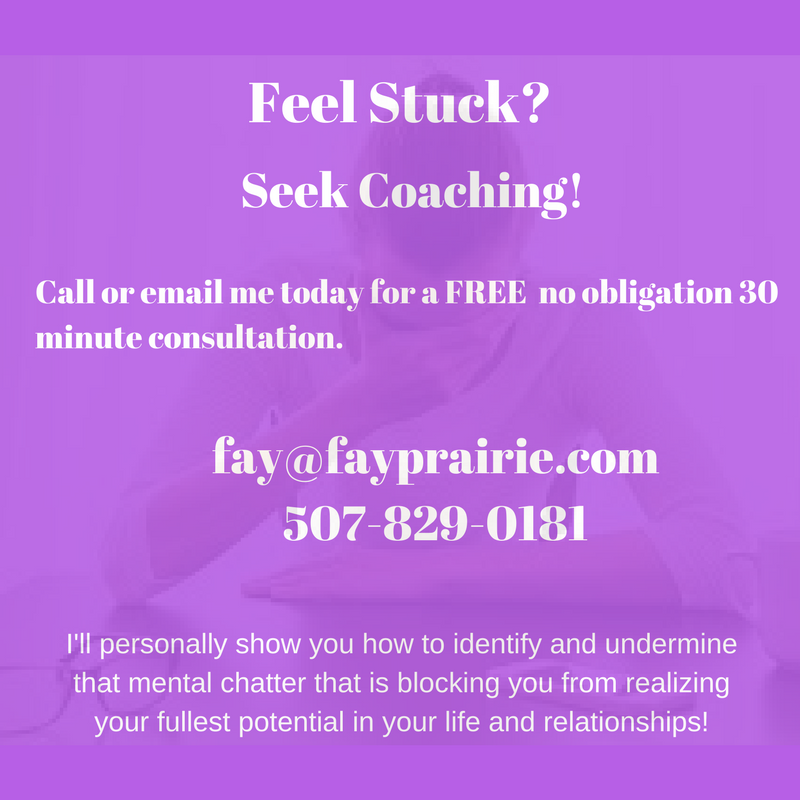
Do you ever ignore or bury your feelings? If so, you’re not alone! The trouble with ignoring our feelings is that they get stuffed and locked away; but, they really don’t disappear.
They come out again—sometimes when you least expect them and sometimes in uglier, unforeseen ways.
Ever thought, “Why did I get so upset over that?” It’s most likely some of those old, buried feelings getting triggered by a situation or person.
I used to be guilty of this (and still revert back on occasion).
If I didn’t want to be angry, I’d just push it down, and ignore the feeling.
If I didn’t want to have an uncomfortable conversation, I’d just suppress my feelings. Then I didn’t have to deal with it. (so I thought)
To be honest, I didn’t really know how to express my feelings—it’s not like anyone ever really teaches you how. You don’t get a class in school on how to express your feelings. (which is too bad because it’s so important and affects every area of our life!)
I’ve since learned–just like a sliver needs to be released so it doesn’t fester and get infected, our feelings need to be released so they don’t fester and lead to an infectious scenario. (I’ve had a few of those infectious scenarios and they’re not fun!) But, they have to be released in a respectful, considerate, timely way. (this makes a big difference in how it’s received)
Feelings buried alive never die and they often increase your stress and hurt your relationships.
The emotional baggage caused by suppressing one’s feelings is also a major cause of many mental and physical health issues today.
Learning to express your feelings will help you to live a better life, have better relationships and be a better you, both personally and professionally.
Here’s 3 Steps to Express Your Feelings
-
Get in Touch
-
Name it to Tame it
-
Talk or Journal it
FIRST STEP: GET IN TOUCH
It’s important to get in touch with your feelings. If you ignore them, they won’t disappear or go away; they’ll just hide deep inside of you. They’ll stay there forever until you acknowledge them by bringing them up to the surface and giving them the attention they need.
It’s essential that you begin to see what’s inside of you because what’s inside is always going to come out.
Feelings need awareness and attention. Allow yourself to feel angry, sad, disappointed, or hurt. Don’t ignore them and don’t substitute anger for all of them.
What you resist persists so don’t resist them. Allow them, acknowledge them and feel them.
SECOND STEP: NAME IT TO TAME IT
Research through the use of an MRI scanner shows that the level of activity in the amygdala (the area of your brain affected by stress) of participants decreased when they described or labelled an emotion.
Labelling what you feel activates a region in the brain responsible for inhibiting or slowing thoughts, which lowers your stress. This also shows that it is wrong to assume that talking about emotions makes things worse. On the contrary, describing an emotion in one or two words helps to diminish it.
With time, this practice, which at first is conscious and intentional, will become habitual, almost natural. The brain starts to rewire itself in order to become more effective at dealing with its emotions.
Bottom Line: Name your emotions: I feel really sad, I’m really disappointed, I feel angry, I’m anxious
Naming your emotions can help them subside so they can move on and not stay “stuck” in you.
THIRD STEP: TALK OR JOURNAL IT
After you’ve become aware of them, labeled them, now talk about them—share them with someone or journal about them. This keeps us from sulking into depression or anger.
When you search for words to express your emotions, you get in touch with your real feelings.
Start small and proceed gradually to build up your skills.
Talk with your co-worker about how her showing up late for appointments affects you. Work your way up to approaching people who may be doing something that is really upsetting to you.
Practice regularly.
Like any other skill that you’d like to improve, open communications improve the more you practice. Take note of daily opportunities to speak up so you will be prepared when more difficult conflicts come along.
Always be tactful
Even when you need to confront some difficult truths, you can choose a setting and the appropriate language that will make the message more palatable. If tempers are already flaring, give yourselves time to calm down and speak privately. Try making requests rather than demanding changes.
Expressing your feelings can help you improve your relationships
Clearing the air promptly helps keep resentments from building up which can help improve all your relationships, from kids to spouse to colleagues and customers.
I’ve learned that when I honestly and respectfully express my feelings, things don’t get a chance to “fester and become infectious” and everything heals better.
Developing this skill has made my life so much easier.
The main reason certain emotions, like anger, become a problem is because they’re not properly dealt with. Dealing with emotions is nothing but really allowing oneself to feel the emotions as and when they arise within us, and then express it respectfully in some form, without causing any harm to others, or oneself.
Start practicing and Good Luck!!!
If you’d like a FREE, NO OBLIGATION 30 minute coaching consultation, contact Fay at fay@fayprairie.com or 507-829-0181 (see what coaching can offer you)






